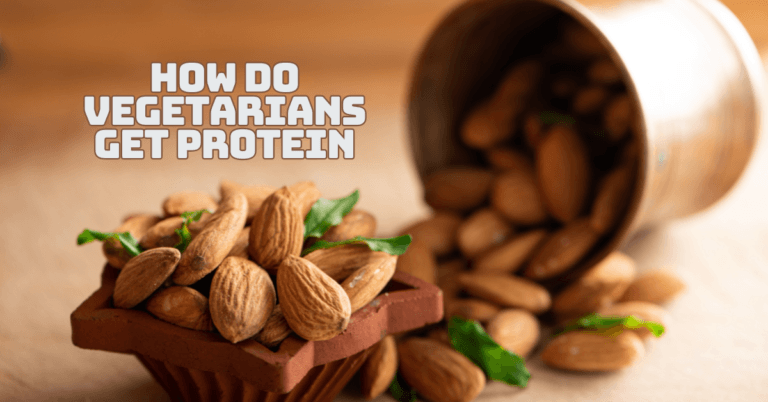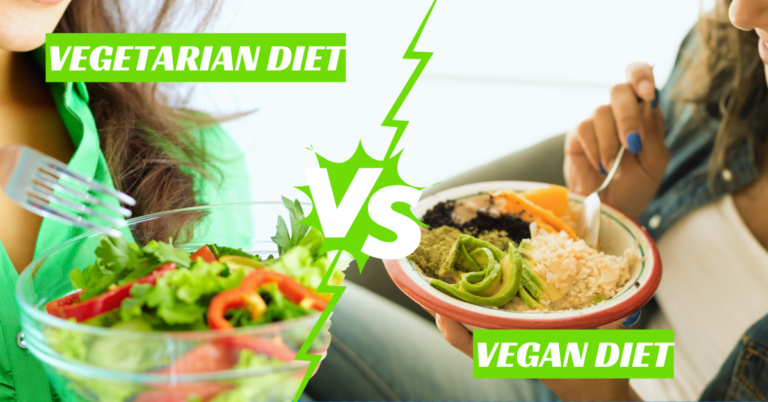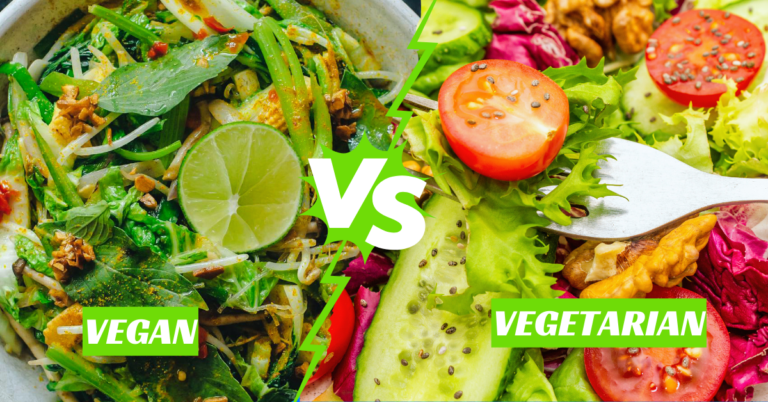Top Vegetarian Diet Supplements
Top Vegetarian Diet Supplements For Optimal Nutrition
A well-balanced vegetarian diet can provide the most essential nutrients. Still, some key vitamins and minerals may be challenging to obtain in sufficient amounts, making diet supplements necessary to help fill these nutritional gaps and ensure
This article will explore essential vegetarian diet supplements, including vitamin B12, iron, omega-3 fatty acids, and more, to support a thriving plant-based lifestyle.

Why Supplements Are Important In A Vegetarian Diet
Supplements are crucial in a vegetarian diet because certain nutrients are harder to obtain from plant-based foods. While a well-planned vegetarian diet can meet many nutritional needs, some essential vitamins and minerals are either absent or present in lower amounts in plant-based foods.
For instance, vitamin B12, primarily found in animal products, is vital for nerve function and red blood cell production. Vegetarians often need B12 supplements to avoid deficiency.
Another vitamin to be concerned about is iron. Non-heme iron from plants is more difficult to absorb than heme iron from meat. Taking iron supplements or eating iron-rich plant foods with vitamin C can boost absorption.
Omega-3 fats, which are equally critical for proper brain function, are found in fish. Vegetarian sources like flaxseeds and chia seeds provide ALA (alpha-linolenic acid), but conversion to the essential forms EPA and DHA is limited.
Omega-3 supplements derived from algae can be an effective alternative. Calcium and vitamin D are also essential for healthy bones.
While they can be obtained from fortified foods, supplements may help ensure adequate intake, especially for those with limited sun exposure or dairy alternatives.
Understanding Nutritional Gaps In A Vegetarian Diet
Understanding nutritional gaps in a vegetarian diet is essential for maintaining overall health and well-being. Although plant-based diets offer many health advantages, including lower risks of obesity and heart disease, some nutrients might be missing.
1. Vitamin B12
Vitamin B12 is lacking in plant foods, making it crucial for vegetarians to supplement. This vitamin is essential for brain health, red blood cell formation, and energy levels.
Symptoms Of Vitamin B12 Deficiency
- Fatigue or weakness
- Difficulty concentrating
- Nerve damage (numbness, tingling in hands and feet)
- Memory loss or confusion
- Anemia
- Mood changes or depression
Dosage Recommendation For Vitamin B12
- Adults: 2.4 micrograms (mcg) per day.
Higher doses (500-1,000 mcg) may be recommended for those with deficiency, often as a supplement or fortified foods. Always seek the opinion of a healthcare professional for specific advice.
2. Iron
Plant-based iron (non-heme) is less absorbable than heme iron from animal sources, which can increase the risk of anemia, particularly in vegetarians.
Symptoms Of Iron Deficiency
- Fatigue or weakness
- Pale skin
- Shortness of breath
- Dizziness or lightheadedness
- Cold hands and feet
- Brittle nails
- Heart palpitations
Dosage Recommendation For Iron
- Men (19+ years): 8 mg per day
- Women (19-50 years): 18 mg per day
- Pregnant women: 27 mg per day
- Postmenopausal women: 8 mg per day
Vegetarians may need to consume 1.8 times the recommended amount due to lower absorption from plant-based sources.
3. Omega-3 Fatty Acids
Omega-3 fatty acids, important for heart and brain function, are usually absent from vegetarian diets. This emphasizes the significance of taking supplements that contain enough EPA and DHA for vegetarian diets.
Symptoms Of Omega-3 Deficiency
- Dry skin or hair
- Poor memory and concentration
- Fatigue
- Mood swings or depression
- Joint pain or stiffness
- Heart-related issues (e.g., high blood pressure)
Dosage Recommendation For Omega-3
- ALA (from plant sources like flaxseeds): 1.6 grams for men and 1.1 grams for women daily.
- EPA/DHA (from algae-based supplements): 250-500 mg per day is often recommended for vegetarians to ensure sufficient intake for heart and brain health.
4. Calcium
Calcium is harder to obtain without dairy in a vegetarian diet, yet critical for maintaining strong bones, teeth, and muscle function.
Symptoms Of Calcium Deficiency
- Weak or brittle bones (osteopenia or osteoporosis)
- Muscle cramps or spasms
- Numbness or tingling in fingers
- Fatigue or lethargy
- Weak, brittle nails
- Increased risk of bone fractures
Dosage Recommendation For Calcium
- Adults (19-50 years): 1,000 mg per day
- Women (51+ years): 1,200 mg per day
- Men (51+ years): 1,000 mg per day
Vegetarians should include fortified foods or supplements to meet these requirements without consuming dairy.
5. Vitamin D
Limited sun exposure or insufficient fortified foods can lead to vitamin D deficiency, negatively impacting bone health and immune function.
Symptoms Of Vitamin D Deficiency
- Fatigue and weakness
- Bone pain or tenderness
- Muscle weakness
- Increased risk of fractures
- Mood changes, such as depression
- Impaired immune response
Dosage Recommendation For Vitamin D
- Adults (19-70 years): 600 IU (15 mcg) per day
- Adults (71+ years): 800 IU (20 mcg) per day
Higher doses (1,000-2,000 IU) may be recommended for those at risk of deficiency, especially during winter for individuals with limited sun exposure. Always see a healthcare provider for particular advice on supplementation.
6. Zinc
Found in fewer plant-based sources, zinc is essential for immune function, wound healing, and DNA synthesis. Vegetarians may need to pay extra attention to their zinc intake to avoid deficiency.
Symptoms Of Zinc Deficiency
- Weakened immune response (increased susceptibility to infections)
- Delayed wound healing
- Hair loss
- Loss of appetite
- Taste abnormalities (altered taste sensation)
- Skin lesions or rashes
Dosage Recommendation For Zinc
- Men (19 years and older): 11 mg per day
- Women (19 years and older): 8 mg per day
Nursing or pregnant women might need more (11–12 mg daily). Vegetarians should consider zinc supplements or consume fortified foods to meet these recommendations, as plant sources contain phytates that can inhibit zinc absorption.
Vegetarian Diet Supplements
Diets based solely on vegetables can be both nutritious and healthful. Still, certain nutrients may be harder to obtain through plant-based foods alone, making vegetarian diet supplements an important consideration for optimal health. Here are some essential supplements for vegetarians to consider:

1. Vitamin B12
Vitamin B12 is a water-soluble vitamin crucial for nerve function, red blood cell production, and DNA synthesis. Fortified foods and supplements support energy production and mental well-being.
Types Of Vitamin B12
- Methylcobalamin: A bioactive form that is easily used by the body.
- Cyanocobalamin: A synthetic form commonly found in supplements and fortified foods.
- Hydroxocobalamin: Often used in injections, it has a longer retention time in the body.
- Adenosylcobalamin: Another bioactive form that supports energy metabolism.
Sources Of Vitamin B12
- Fortified Foods: Plant-based milk, breakfast cereals, nutritional yeast, and meat substitutes.
- Supplements: Available as capsules, sublingual tablets, and injections.
Benefits Of Vitamin B12
- Nerve Function: Supports the myelin sheath maintenance around nerves, preventing nerve damage.
- Red Blood Cell Production: Essential for the formation of red blood cells, preventing anemia.
- DNA Synthesis: Plays a crucial role in DNA replication and cell division.
- Energy Production: Helps the body turn food into energy, which lessens weakness and exhaustion.
- Mood Regulation: Supports mental health by aiding neurotransmitter production, potentially reducing depression risk.

2. Iron
Iron is critical in oxygen transport, energy production, and immune function. Proper intake and absorption are essential for preventing anemia and supporting overall health with plant-based and animal sources.
Types Of Iron
- Heme Iron: Found in animal-based goods; easier to absorb.
- Non-heme Iron: Found in plant-based foods; less efficiently absorbed.
Sources Of Iron
- Plant Sources (Non-Heme Iron): Lentils, beans, tofu, spinach, quinoa, fortified cereals, nuts, and seeds.
- Enhancers: Vitamin C-rich foods (citrus fruits, bell peppers) can enhance non-heme iron absorption.
Benefits Of Iron
- Oxygen Transport: Essential for hemoglobin formation, which carries oxygen in the blood.
- Energy Production: Supports energy metabolism by converting nutrients into usable energy.
- Immune Function: This is crucial in maintaining a healthy immune system.
- Cognitive Function: Important for brain health, as iron is involved in neurotransmitter production.
- Preventing Anemia: Preventing anemia is crucial, as adequate iron intake helps prevent iron-deficiency anemia, especially in menstruating and pregnant women, which may necessitate vegetarian diet supplements to meet their iron needs.
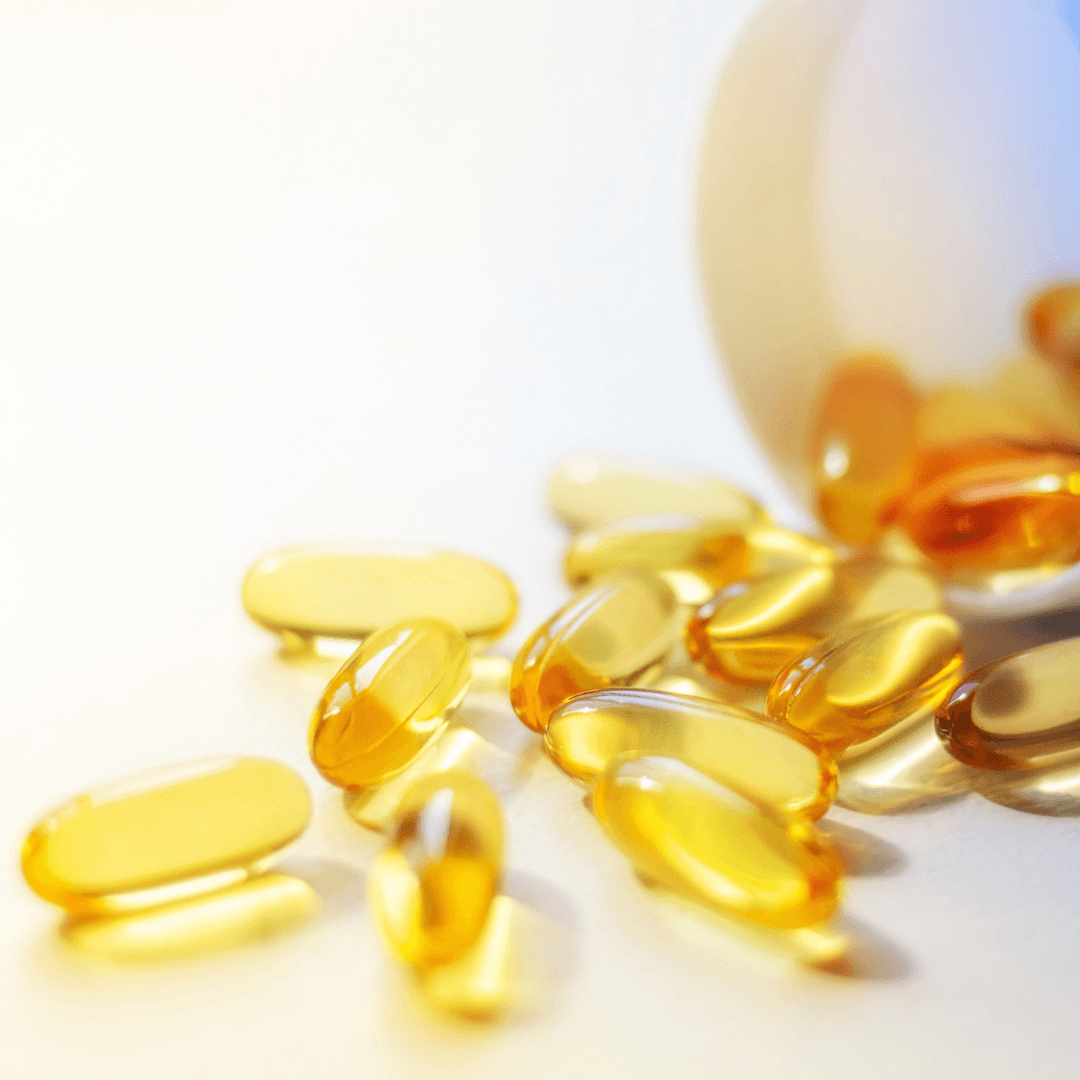
3. Omega-3 Fatty Acids (DHA and EPA)
Omega-3 fatty acids, particularly DHA and EPA, are essential polyunsaturated fats critical for cardiovascular, cognitive, and ocular health. Sourced from various foods and supplements, they offer significant anti-inflammatory benefits.
Types Of Omega-3 Fatty Acid
- DHA (Docosahexaenoic Acid): Crucial for brain health and function.
- EPA (Eicosapentaenoic Acid): Enhances cardiac health and lowers inflammation.
Sources Of Omega-3 Acid
- Flaxseed Oil: An abundant supply of ALA, an essential precursor to EPA and DHA.
- Chia Seeds: High in ALA, promoting omega-3 intake
- Walnuts: Another plant source of ALA.
- Algal Oil: Algae-based supplements provide a direct source of DHA and EPA.
Benefits Of Omega-3 Acid
- Heart Health: Reduces triglycerides, lowers blood pressure, and supports cardiovascular health.
- Brain Function: Essential for cognitive function, memory, and mental health.
- Anti-Inflammatory: Helps reduce inflammation, potentially lowering the risk of chronic diseases.
- Eye Health: Supports retinal function and may reduce the risk of macular degeneration.
- Mood Regulation: This may alleviate symptoms of depression and anxiety.

4. Vitamin D
Vitamin D is a vital fat-soluble vitamin essential for calcium absorption, immune function, and overall health. It is obtained from sunlight, fortified foods, and supplements and significantly influences various physiological processes.
Types Of Vitamin D
- Vitamin D2 (Ergocalciferol): Derived from yeast and fungi; less effective at raising vitamin D levels.
- Vitamin D3 (Cholecalciferol): Derived from animal sources (lanolin) or produced from lichen; more effective in increasing vitamin D levels.
Sources Of Vitamin D
- Fortified Foods: Plant-based milk, cereals, and orange juice.
- Sunlight: The skin produces vitamin D upon exposure to sunlight; geographic location and time of year affect production.
- Supplements: Vitamin D3 is often recommended for those with limited sun exposure.
Benefits Of Vitamin D
- Bone Health: Enhances calcium absorption, supporting bone density and reducing fracture risk.
- Immune Function: Boosts immunity and aids in the body's defence against illnesses.
- Mood Regulation: Associated with mood stability; may help alleviate symptoms of depression.
- Muscle Function: Supports muscle strength and function, reducing the risk of falls in older adults.
- Chronic Disease Prevention: linked to a decreased risk of contracting various diseases, including heart disease and certain cancers.

5. Calcium
Calcium is essential for bone density, muscle function, nerve transmission, and blood clotting. It is also available in various forms and dietary sources and is vital for overall health.
Types Of Calcium
- Calcium Carbonate: Most common; requires stomach acid for absorption.
- Calcium Citrate: Better absorbed without food; ideal for those with low stomach acid.
- Calcium Lactate and Calcium Gluconate: Less concentrated forms but also effective.
Sources Of Calcium
- Dairy Products: Milk, cheese, and yogurt for dairy consumers.
- Plant-Based Sources:
- Fortified Plant Milk: Almond, soy, and oat milk is often fortified with calcium.
- Leafy Greens: Bok choy, collard greens, and kale.
- Tofu: Calcium-set tofu provides a significant amount.
- Seeds: Chia seeds and sesame seeds.
- Legumes: Beans and lentils
Benefits Of Calcium
- Bone Health: Crucial for developing and maintaining strong bones, reducing the risk of osteoporosis.
- Dental Health: Supports tooth structure and strength.
- Muscle Function: Vital for both the contraction and relaxation of muscles.
- Nerve Transmission: Plays a role in transmitting nerve impulses.
- Blood Clotting: Necessary for proper blood coagulation processes, helping to prevent excessive bleeding.

6. L-Arginine And L-Carnitine
L-arginine and L-carnitine are amino acids that support heart health, exercise performance, and cognitive function. Found in various foods and supplements, they are vital for overall well-being.
Types Of L-Arginine And L-Carnitine
- L-Arginine: A semi-essential amino acid, meaning the body can produce it but may require supplementation under certain conditions.
- L-Carnitine: A compound derived from amino acids, often classified as a nutrient and is synthesized in the body.
Sources Of L-Arginine And L-Carnitine
- L-Arginine: Available in nuts, seeds, whole grains, and legumes but in smaller amounts.
- L-Carnitine: Limited in plant-based sources; can be synthesized from L-lysine and L-methionine.
Benefits Of L-Arginine And L-Carnitine
- Heart Health
- L-Arginine: Helps to relax blood vessels and reduce blood pressure by converting to nitric oxide, which supports blood flow.
- L-Carnitine: L-carnitine, which plays a role in fat metabolism and energy production in heart cells, can benefit vegetarians. This emphasizes how crucial supplements for a vegetarian diet are for maintaining heart health and possibly lowering the risk of heart disease.
- Exercise Performance: May enhance athletic performance and recovery by improving blood flow and reducing fatigue.
- Weight Management: L-Carnitine may assist in fat burning during exercise, supporting weight loss efforts.
- Cognitive Function: Both amino acids may positively impact brain health and mental performance.
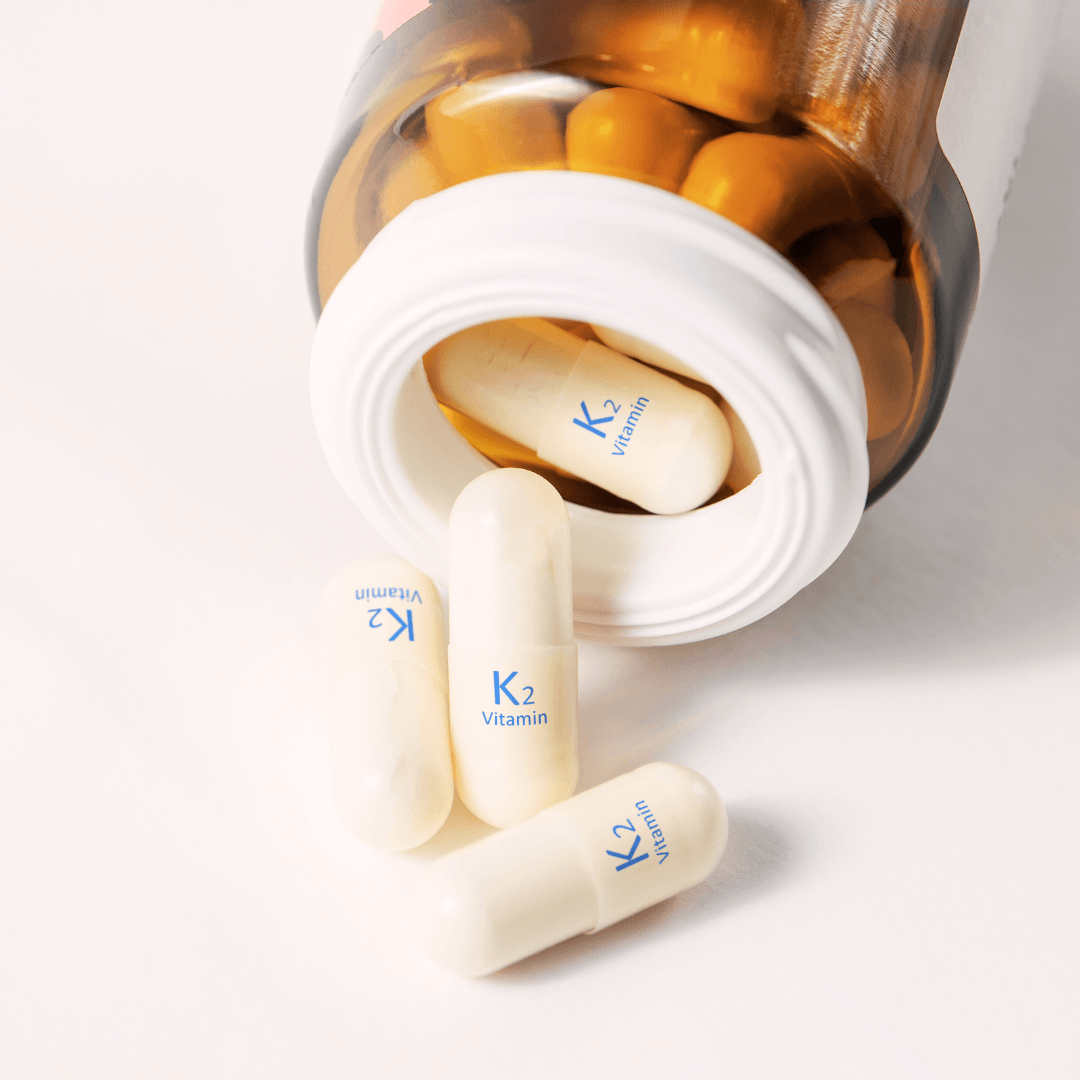
7. Vitamin K2
Vitamin K2 is essential for bone and cardiovascular health, supporting calcium regulation and hormonal balance. It offers various health benefits, found in fermented foods and available as supplements.
Types Of Vitamin K2
- MK-4 (Menaquinone-4): Found in animal products; has a shorter half-life in the body.
- MK-7 (Menaquinone-7): Found in fermented foods, it has a longer half-life, providing sustained benefits.
Sources Of Vitamin K2
- Fermented Foods: Natto (fermented soybeans), sauerkraut, and certain types of yogurt.
- Supplements: Available in MK-4 and MK-7 forms, suitable for those not consuming sufficient dietary sources.
Benefits Of Vitamin K2
- Bone Health: Essential for regulating calcium in bones, helping to enhance bone density and reduce fracture risk.
- Cardiovascular Health: Helps prevent the calcification of arteries by directing calcium to bones rather than soft tissues.
- Dental Health: Helps teeth regain their mineral content, which may lower the chance of cavities.
- Anti-Inflammatory Effects: May help reduce inflammation and improve overall health.
- Hormonal Balance: Supports the production of certain hormones that can impact bone health and overall metabolic function.
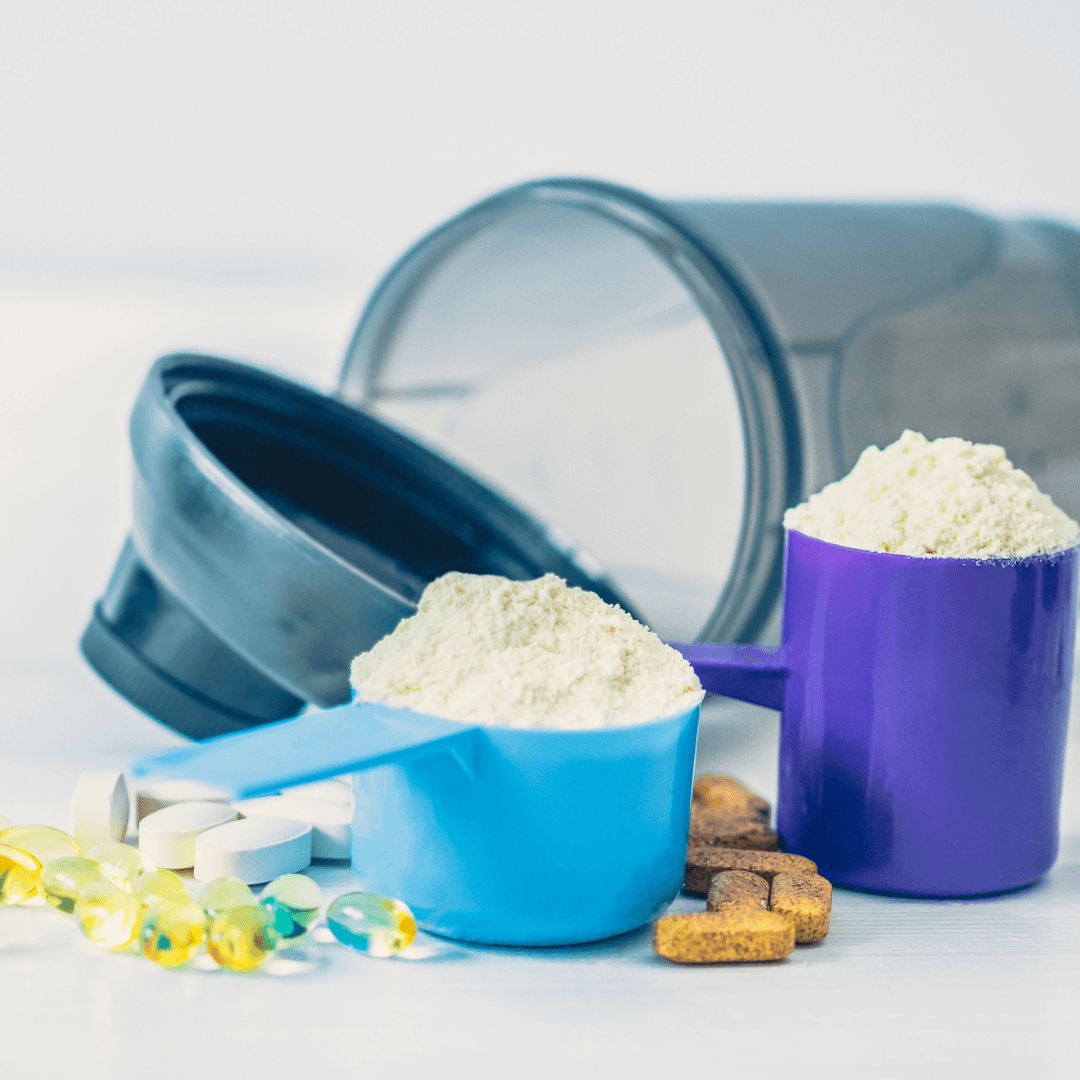
8. Protein
Protein is a crucial macronutrient that supports muscle growth, weight management, immune function, energy production, and hormone regulation. It can be obtained from both plant-based sources and supplements.
Types Of Protein
- Complete Proteins: Contain all essential amino acids (e.g., quinoa, soy, and chia seeds).
- Incomplete Proteins: Lack one or more of the required amino acids (most legumes, nuts, and seeds, for example).
Sources Of Protein
Plant-Based Sources
- Legumes: Beans, lentils, and chickpeas.
- Nuts and Seeds: Almonds, walnuts, chia, and pumpkin seeds.
- Whole Grains: Quinoa, brown rice, and oats.
- Dairy Products: Milk, yogurt, and cheese for lacto-vegetarians.
Protein Powders
- Pea Protein: A popular plant-based option.
- Soy Protein: Complete protein derived from soybeans.
- Brown Rice Protein: Frequently paired with pea protein to provide a comprehensive amino acid profile.
Benefits Of Protein
- Muscle Growth: It supports muscle growth and regeneration, which is crucial for athletes and anyone who exercises frequently.
- Weight Management: Promotes satiety, helps to manage hunger and supports weight loss efforts.
- Immune Function: Contributes to producing antibodies and immune cells, supporting overall health.
- Energy Production: Essential for energy metabolism and maintaining muscle mass during weight loss.
- Hormone Regulation: Hormone regulation is crucial in hormone production and balance, affecting various bodily functions. Therefore, vegetarian diet supplements may be necessary to ensure adequate nutrient intake.
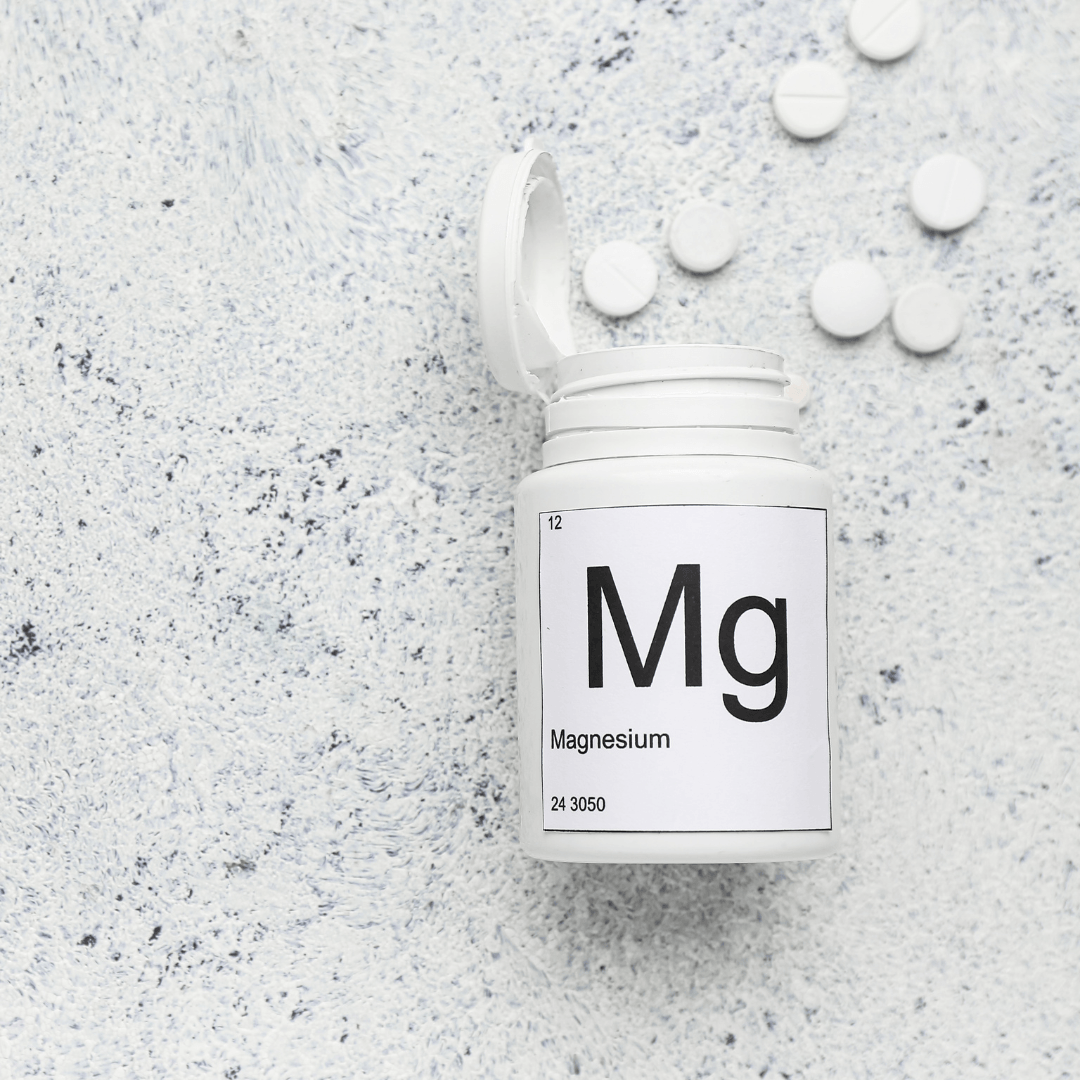
9. Magnesium
Magnesium is essential for muscle function, bone health, and stress relief. It is found in foods like leafy greens and nuts but can also be supplemented with magnesium citrate and glycinate for added support.
Types Of Magnesium
- Magnesium citrate: It is easily absorbed and often used for supplementation.
- Magnesium Glycinate: Known for its calming effects, it is beneficial for sleep and relaxation.
- Magnesium Oxide: Commonly used but less bioavailable; often used for digestive issues.
- Magnesium Chloride: Highly bioavailable; can be used for topical applications.
Sources Of Magnesium
Plant-Based Foods
- Leafy Greens: Spinach, Swiss chard, and kale.
- Nuts and Seeds: Almonds, cashews, and pumpkin seeds.
- Whole Grains: Brown rice, quinoa, and whole wheat products.
- Legumes: Beans, lentils, and peas.
- Supplements: These are available in various forms for those who may not meet their needs through diet alone.
Benefits Of Magnesium
- Muscle and Nerve Function: Regulates muscle contractions and nerve transmission, preventing cramps and spasms.
- Bone Health: Supports bone density by aiding calcium absorption and bone mineralization.
- Blood Sugar Regulation: Helps manage insulin sensitivity and maintain stable blood sugar levels.
- Cardiovascular Health: Contributes to heart rhythm stability and blood pressure regulation.
- Stress Relief: Promotes relaxation and reduces anxiety by regulating neurotransmitters involved in stress responses.

10. Folate (Vitamin B9)
Folate (Vitamin B9) is essential for DNA synthesis, cell growth, pregnancy support, red blood cell formation, heart health, and mental well-being. It is available in natural foods or synthetic supplements like folic acid.
Types Of Folate (Vitamin B9)
- Folate: The natural form found in foods.
- Folic Acid: The artificial form found in foodstuffs and supplements.
Sources Of Folate (Vitamin B9)
- Leafy Greens: Spinach, kale, and romaine lettuce.
- Legumes: Lentils, chickpeas, and black beans.
- Fruits: Oranges, bananas, and avocados.
- Nuts and Seeds: Peanuts and sunflower seeds.
- Fortified Foods: Breakfast cereals, bread, and pasta.
Benefits Of Folate (Vitamin B9)
- DNA Synthesis and Repair: These are essential for forming DNA and RNA and vital for cell division and growth.
- Pregnancy Support: Vital for embryonic development, promoting proper growth and dramatically lowering the chance of neural tube abnormalities.
- Red Blood Cell Formation: Aids in the production of red blood cells, preventing anemia.
- Heart Health: Helps lower homocysteine levels, potentially reducing the risk of cardiovascular diseases.
- Mental Health: Supports mood regulation and may help alleviate symptoms of depression and cognitive decline.
Disclaimer
This blog is not meant to replace medical advice; it is informational only. Seek medical guidance before starting any new supplement program.
Conclusion
In conclusion, despite its many health benefits, a vegetarian diet might present certain nutritional issues. Therefore, supplements are necessary to promote overall health and prevent deficiencies.
Vegetarians can support their well-being and prevent deficiencies by incorporating the right supplements. Always seek the advice of a healthcare professional to build a healthy, well-balanced vegetarian lifestyle that satisfies specific nutritional requirements.
I trust you enjoyed this article about the Top Vegetarian Diet Supplements For Optimal Nutrition. Please stay tuned for more blog posts soon. Take care!
JeannetteZ
>>>Please click here to read my Vegan Travel Guides To World Destinations<<<
>>>Want To Learn How To Create Delicious, Cruelty-Free, Healthy AND 100% Vegan Meals? Try These Awesome Vegan Cooking Courses With A Free 7-DAY MEMBERSHIP<<<
Your Opinion Is Important To Me
Do you have thoughts, ideas, or questions? I would love to hear from you. Please leave me your questions, experiences, and remarks about the Top Vegetarian Diet Supplements For Optimal Nutrition article in the comments section below. You can also email me at Jeannette@LivingTheVeganLifestyle.org.
Disclosure
This post may contain affiliate links. I earn from qualifying purchases as an Amazon Associate and other affiliate programs. Please read my full disclosure.
Here are links to some of my favourite articles:
Top Vegan Probiotic Food For A Healthy Gut
Best Vegan Restaurants In Pensacola


